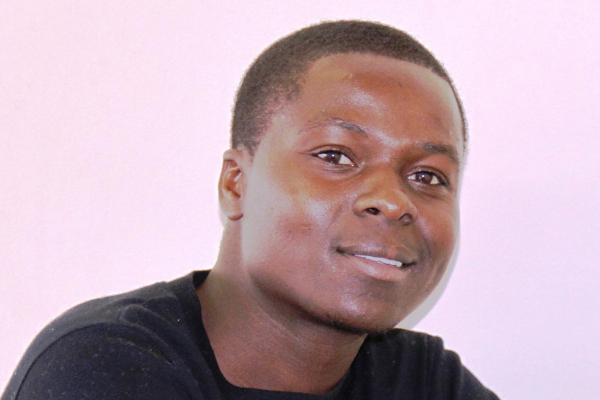
SUNGURA musician Tatenda “Spanner Boy” Pinjisi signalled his entry into the showbiz, with his debut album, Rumbidzo Kumusiki, which included the plug track, Saina. The song almost became the soundtrack of many public gatherings, while receiving massive airplay on local radio.
By Winstone Antonio
With his debut album, Pinjisi proved he was not a pushover in this competitive sungura genre, as he also attracted hearts of some music promoters that he become one of the sought-after artistes to play at their respective joints. As the Holy Super Sounds frontman prepares the launch of his second album, Chibhakera Chenyasha (Fist of Grace) on March 28 at Dandaro Inn, Harare, NewsDay Life & Style Reporter, Winstone Antonio (ND), caught up with the musician (TP) who opened up on his career. Here are the excerpts.
ND: Does your music reflect your personal lifestyle?
TP: No. I sing about the things happening in our society, to those of Christian background and those of non-Christian background. I sing about love. I motivate. I inspire people to believe in God and in themselves.
ND: How is your life off the stage?
TP: My life has changed after I released my first album and I want to thank God for the great improvement in my life. I have earned the respect of my family and fans from across the country.
ND: We have a lot of sungura artistes, what make you and your work unique?
- Chamisa under fire over US$120K donation
- Mavhunga puts DeMbare into Chibuku quarterfinals
- Pension funds bet on Cabora Bassa oilfields
- Councils defy govt fire tender directive
Keep Reading
TP: I have come with additional instruments to bring a better flavour in sungura. I use keyboards, congas, percussions and female vocals. I have the best stage work in terms of choreography. However, I have moved from sungura name to Mixed International Music of Southern Africa (MIMOSA), because of the uniqueness of my music.
ND: Did your upbringing influence your choice of genre?
TP: Yes, I grew up listening to sungura and rhumba music and I was the rhythm guitarist for a local sungura artiste for five years before launching my own music career.
ND: What inspires you in line of your work?
TP: The music of the great Baba Mechanic Manyeruke inspires me a lot. His music pushes me to sing that is why I came up with the Mimosa genre.
ND: Tell us about your forthcoming album Chibhakera Chenyasha?
TP: The album has seven tracks and will be launched at Dandaro Inn at Harare Showgrounds. We are inviting fellow musicians, media, and all our fans to this big day. For the live broadcast of the launch we have partnered with Radio Zimbabwe.
ND: Who are the biggest influences in your music and style?
TP: I like the way Thomas Mukanya Mapfumo does his things, the way he plays his instruments and his use of female vocals, and Mechanic Manyeruke style of singing as well as his message. I think those two dominate in terms of influencing my music.
ND: If you are to choose to work with some of the established artistes or producers, who would you like to collaborate with?
TP: I have always wanted to work with big names to spread the good news in Africa and the world. I would like to work with Oliver Mtukudzi, Jah Prayzah and Alick Macheso. Beyond our borders I would pick on the likes of Werrason, Koffi Olomide, Akon, Sean Paul and bring them to sing on my Mimosa genre.
ND: Do you think the advent of internet and other new technologies has helped artistes?
TP: Definitely it has helped us a lot in the sense that music is moving fast through WhatsApp and Facebook to reach different parts of the country. But this has its disadvantages, especially the financial side. We don’t get any money from the pirated music, but when people get to know the music through the internet, they will attend our shows.
ND: In your view, what is the biggest hurdle an artiste like yourself has to overcome to gain any commercial success?
TP: The biggest challenge that I face mostly is to cater for some expenses like the public address system, transport to shows and stage costumes. These are the major challenges that I face. I would want to take this opportunity to appeal to genuine sponsors to partner with us.
ND: Your last words?
TP: I would like to thank God for this great life, promoters and fans for the support they give me. I am really humbled with the great support.











